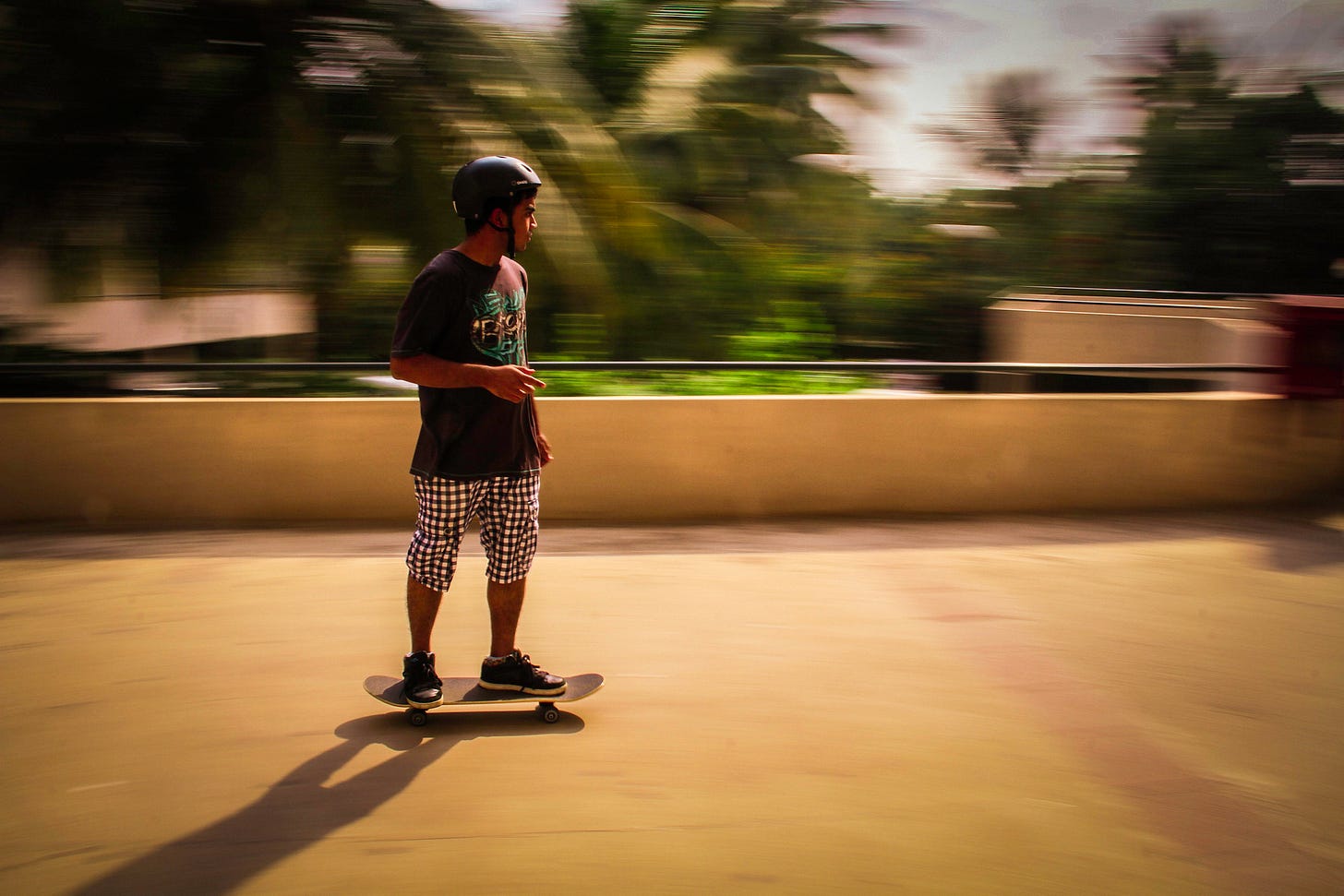Answering "where are you from?"
Trying to figure out my identity crisis
Reminder: please unsubscribe if you don’t want to receive weekly emails :) link at the bottom of this email!
I’ve always had somewhat of an identity crisis.
I spent my childhood and teen years in Bangalore, but I was born in New Delhi, where my entire family is from. I went to college in Manipal in coastal Karnataka and then moved to Paris, France right after. So when someone asks me “where are you from?” I’m very confused.
In Bangalore, my school separated the Kannada language kids and the Hindi language kids at ages 5-6 so that we can focus on our own languages separately. So the local Bangalore kids and I were never in the same class.
Hence, I can’t speak Kannada because growing up I was simply not exposed to it, and add to this that my Hindi, while being fluent, “sounds like an NRI” or “sounds like a South Indian” because I spoke mostly English growing up in cosmopolitan Bangalore.
I’m too “North Indian” for Bangalore, and I’m too “South Indian” for Delhi.
Growing up in Bangalore in the early 2000s, many of my classmates and friends were children of ex-NRIs newly returned from the US. The rest of them were kids of parents who worked for American companies and traveled a lot, including me, and they were from all over the country. And our only common language was English.
That’s how I picked up English to a native level, at age 6, and that’s how I picked up western music, TV shows, movies, and media, because that’s what all the kids around me were talking about.
My “westernization” started from there, eventually reaching a point at age 14 where I was eating aloo parathas with a fork and knife because I didn’t want to get my hands messy. I thankfully don’t do that anymore, but I’m still not too comfortable eating with my hands for some reason.
And so now, when I’m with Indians abroad, I have trouble speaking Hindi and eating with my hands. But I never lived abroad before this. Am I a phony?
I’m “too brown” to be western, and I’m “too western” to be Indian.
Funnily enough, when I lived in Los Angeles in 2019, I felt most “at home” there.
Maybe because of all the American (mostly Californian) culture I consumed as a kid and young adult.
Maybe because most of the music I listen to is indie bands from California. Or skateboarding. Or surfing culture. Or the tech and marketing culture I immerse myself in. Or YouTube.
Maybe also because it was the first time I lived in a place where the first language was my first language, English.
Or maybe because everyone there was practically an immigrant, whether first-gen, second-gen, third-gen, or further.
But when people asked me “where are you from?” it was the same issue all over again. I’m not American. I’m Indian. And I live in France. Where did all my American-ness come from?
In France, my English is too American to be European. But I’m too Indian to be American. And I’m too European to be Indian.
So where am I from?
Simple answer: it depends on who’s asking.
Over time, I learned that the real purpose of asking this question is to make a connection. To understand my background as quickly as possible, and make a personal connect in some way.
And so, if a South Indian asks me, I’ll first say “Bangalore”. If a North Indian asks me, I’ll say “Bangalore, but my family is from Delhi”. If a European asks me “Indian, but I live in Paris”. If a French person asks me “I live in Paris since 4 years ago, but I’m from India." If I’m speaking to an American person, I’ll make sure to drop into the conversation something about living in Los Angeles for half a year.
I don’t think it’s being fake. I think it’s about making a connection, and showing the other person that you “get them”.
And being able to do that with people from 3 different continents, is one of the biggest positives of being a third culture kid, despite the identity crisis that comes with it, which I guess I’ll never be able to define with a geographical location.
Video of the week
Unfortunately, I was a bit late in my video for this week — it should be uploaded tomorrow!
Inspirations of the week
1. Nikhil Kini
Nikhil is one of my favorite storytellers, and he’s in the UK with his buddy this month, and they are vlogging it all.
Their vlogs are extremely entertaining, and the thing I like about them the most is that Nikhil and Suraj are really great at being 100% authentic in their videos. I highly recommend giving them a watch!
2. How to tell better stories
I listened to this episode and immediately ordered Kindra’s book on storytelling. I highly recommend it.
If you don’t use Spotify you can find other listening links here.
Thanks for reading so far! Let me know what you think by responding to this email and sharing your thoughts :) Or comment down below!
— Mayank



I am sure that arriving at this took a lot of introspection. I think all these different backgrounds make you an even more interesting and cooler person, and I assume that it helps you understand cultures of different places deeply.